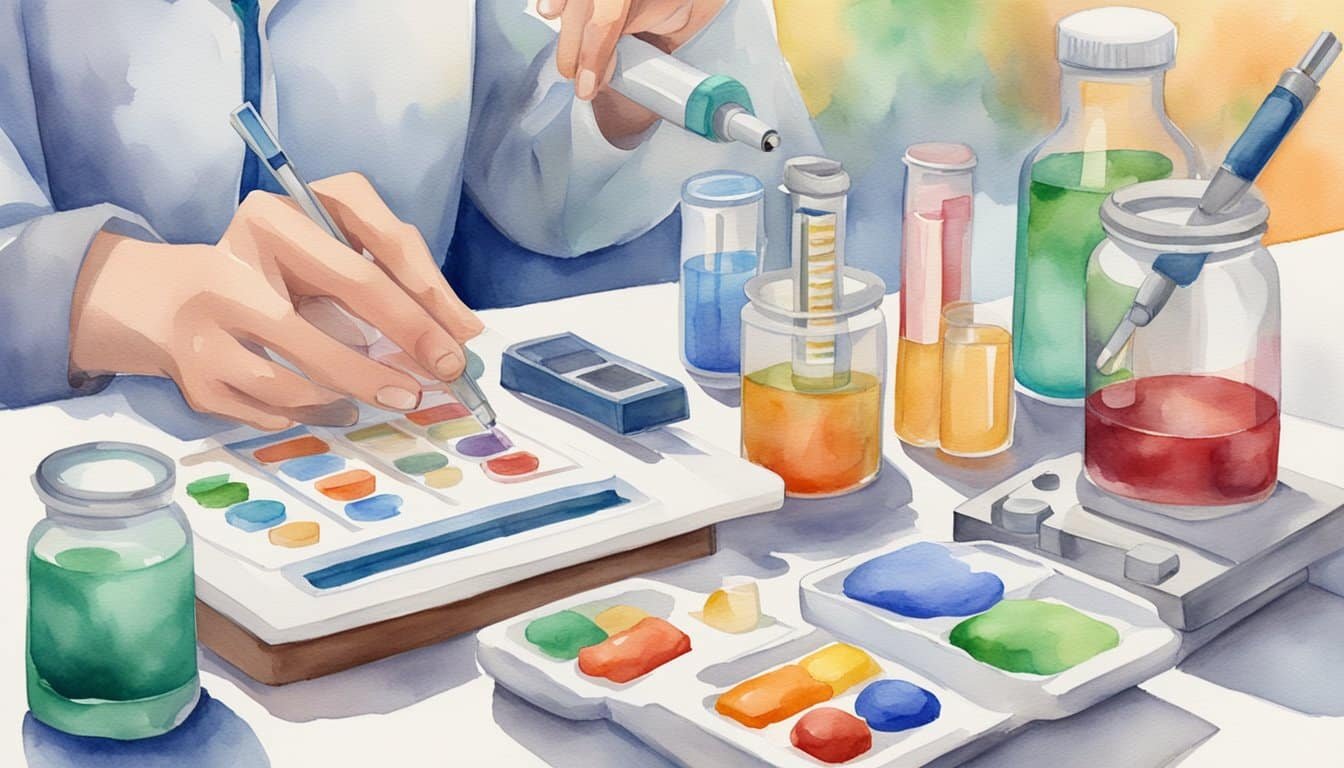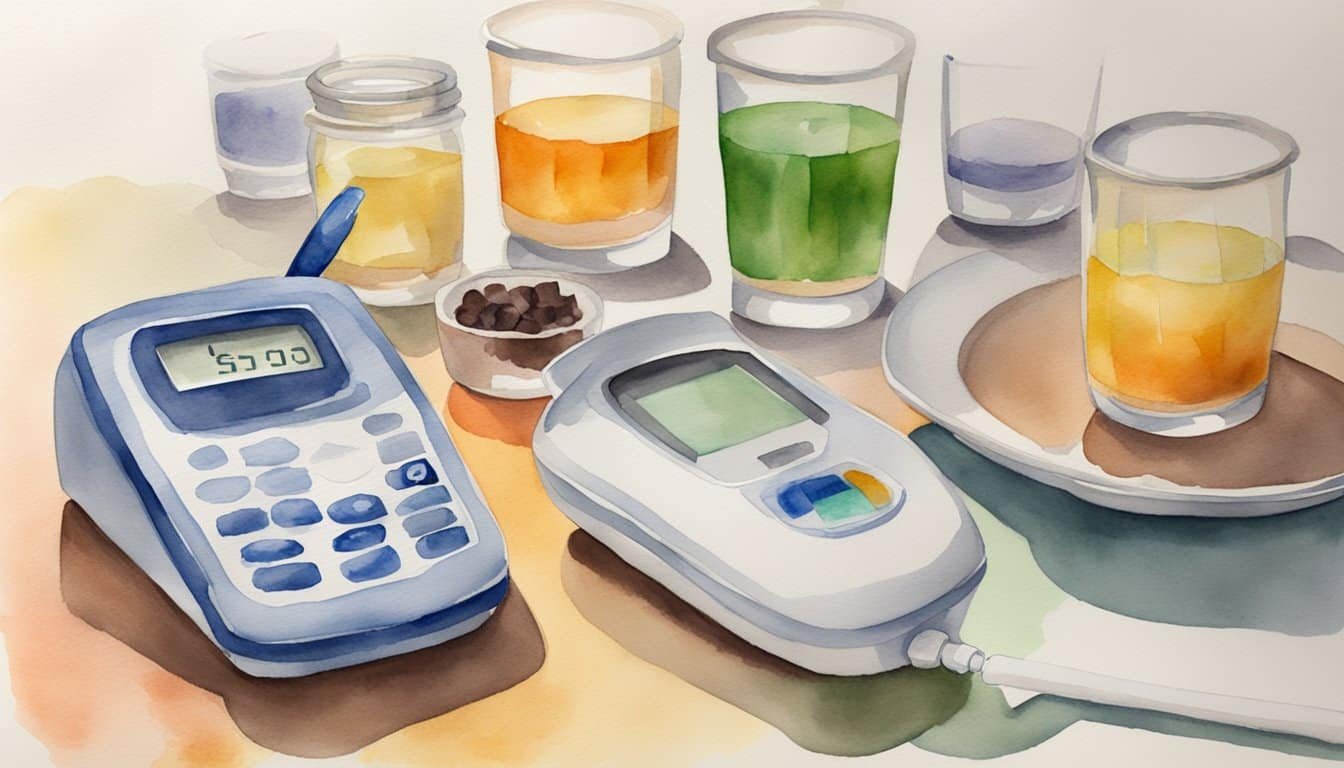Understanding Sucralose and Its Effects on Blood Sugar
When sweetening their coffee or picking out diet sodas, many people reach for sucralose, a common sugar substitute, without fully understanding its effects on blood sugar levels. This section delves into the nature of sucralose and what studies show about its impact on our glucose and insulin.
What Is Sucralose?
Sucralose is an artificial sweetener that’s found in a variety of foods and beverages. It’s known for being a low-calorie, non-nutritive sweetener, which means it adds sweetness without the calories typically found in sugar. Sucralose is unique in that it’s made from sugar but is about 600 times sweeter and is not broken down by the body, resulting in a product with zero calories.
Impact of Sucralose on Blood Sugar Levels
The relationship between sucralose and blood sugar levels has been the subject of many studies. The question at heart is whether sucralose, like sugar, can raise blood glucose or insulin levels. Findings have been mixed; some research suggests a connection between sucralose and increased glucose and insulin levels, especially when consumed with carbohydrates. For example, a study reports that sucralose may enhance the release of GLP-1, a hormone involved in blood sugar control, and lower blood glucose when carbohydrates are also consumed. However, it appears to have a different effect on healthy subjects compared to individuals with type 2 diabetes.
On the other hand, there’s also evidence that sucralose doesn’t influence blood sugar or insulin levels in some cases. This suggests that its metabolic effects can vary and need to be understood in context. Multiple studies have investigated the role of sucralose in health, ranging from its effect on glucose metabolism and gut hormones to larger implications on cardiometabolic health. For instance, while one study indicates that chronic sucralose consumption could lead to higher serum insulin in young healthy adults, others argue that sucralose has no effect on blood glucose concentrations.
Understanding the exact impact of sucralose on blood sugar levels remains complex and is seemingly influenced by individual metabolic responses and the presence of carbohydrates. It’s clear that while sucralose is a popular sugar substitute for those aiming to reduce calorie intake, science continues to examine its nuanced effects on metabolic processes related to blood sugar and diabetes.
Health Considerations and Safety of Sucralose

Peeking into the safety and health impacts of sucralose reveals a blend of assurance and warnings. While many enjoy its sweetness without calories, understanding its influence on our wellness is a scoop worth tasting.
Is Sucralose Safe to Consume?
Sucralose, an artificial sweetener known as Splenda, has passed the Food and Drug Administration (FDA) muster for general safety. It’s widely used to sweeten products without adding calories, aiming to help in weight management. Despite the FDA’s green light, rumors about sucralose whisper tales of health concerns ranging from disrupting gut health to affecting the glucose levels in a body.
Most consumers can stir sucralose into their lives with minimal worry. Research digs into sucralose’s effect on the gut microbiome, though findings haven’t confirmed significant concerns. What sticks out is the call for moderation, much like with any other food or drink, as a balanced diet is a well-seasoned recipe for good health.
Potential Health Risks and Benefits
Sucralose sweetens without the sugar spike, making it an attractive choice for people monitoring their blood sugar levels, including those with diabetes. It’s a sugar swap that’s meant to sidestep the route to obesity due to high-calorie intake.
Yet, not all that’s sweet is serene. A sprinkle of concerns stirs around the potential impact sucralose could have on insulin response and whether it might tangle with the body’s normal metabolic responses. Remember, it’s not just about adding sweetness but also about keeping the body’s internal garden—the gut microbiome—blooming with beneficial bacteria. There’s a rumble in the research about whether sucralose might trim the diversity of this inner microbial universe. Also, one can’t dismiss whispers of inflammation or immune system responses, ingredients no one wants in their wellbeing.
While the cup of data is not brimming, studies suggest that in moderation, sucralose’s benefits may outflavor potential risks for most. Yet, for the perfect health recipe, each person should gauge their own ingredients sensitively.
Practical Uses and Alternatives to Sucralose

Sucralose is a popular sugar alternative for those looking to reduce their calorie intake without sacrificing sweet taste in foods and beverages. This section delves into how it can be used in everyday diet and cooking, and what other sweetener options are available for those seeking variety or have different nutritional goals.
Using Sucralose in Diet and Cooking
Sucralose, often recognized in diet sodas and a variety of calorie-free sweetened products, is a versatile sugar substitute that can be used in both cooking and baking. Because it withstands high temperatures without breaking down, it maintains sweetness even when used in baked goods. For those keeping a close eye on their calorie consumption, sucralose offers a practical way to enjoy sweet flavors without the added calories that come from sugar. People seeking weight loss or diabetic-friendly recipes often integrate sucralose into their diet to help manage their calorie and sugar intake more effectively. A study has shown that sucralose does not affect blood glucose or insulin levels, which may be especially relevant for those with diabetes.
Exploring Other Sweetener Options
While sucralose is a suitable sugar alternative for many, there are numerous other artificial sweeteners and natural sugar substitutes that cater to different tastes and dietary needs. Aspartame, another popular sweetening agent found in soft drinks and diet sodas, is widely used for its sugar-like taste, though it is not heat-stable and thus less suitable for cooking or baking. Stevia, derived from the leaves of the Stevia rebaudiana plant, provides a natural, calorie-free option and has grown in popularity for its sweet taste and minimal effect on blood glucose levels. Saccharin and neotame are additional alternatives that offer intense sweetness with minimal or no calories. However, moderation is key with all sweeteners to maintain balanced nutrition. When considering alternatives to sucralose, one should keep in mind factors like taste preference, cooking needs, and nutrition objectives. A review article reinforces the importance of evaluating the safety of alternatives like sucralose in nutrition.

